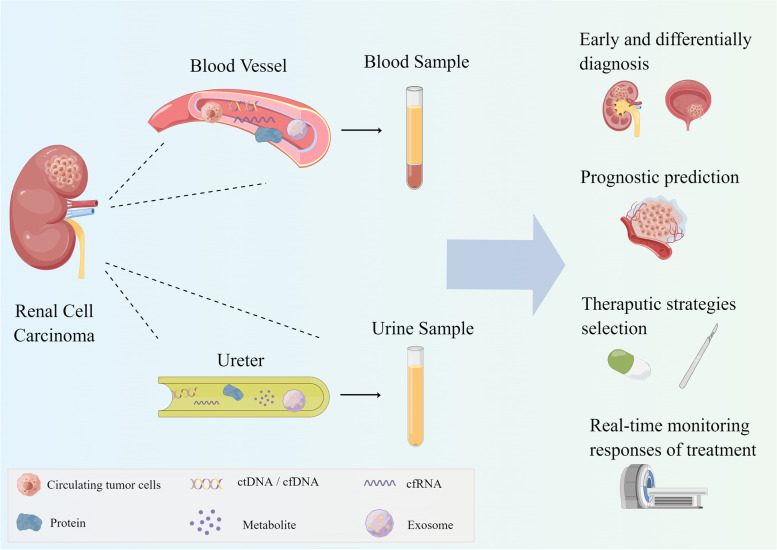Fig. 1.
Samples and components for liquid biopsy of RCC. Liquid biopsy for RCC mainly uses blood and urine samples comprising CTCs, cfDNA/ctDNA, cfRNA, proteins, metabolites, and exosomes. Due to its non-invasiveness, liquid biopsy can be used to collect patient information continuously and plays multiple roles at different stages of disease. It can screen patients with RCC in the healthy population and identify urological masses for differential diagnosis. Before treatment, liquid biopsy can predict the risk of progression to identify high-risk patients and predict the response of patients to various treatments, which helps to select the appropriate treatment plan. After treatment, liquid biopsy allows real-time monitoring of patient outcomes and prevention of postoperative recurrence and metastasis

